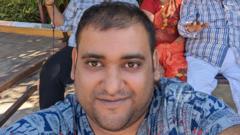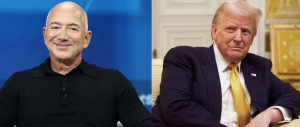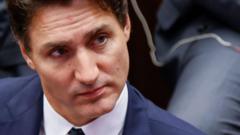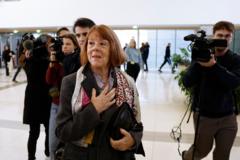As President-elect Donald Trump initiates talks with world leaders, he emphasizes cooperation on security, trade, and strategic partnerships, setting a collaborative tone for his upcoming term.
Trump’s Victory: Renewed Diplomatic Engagements with Global Leaders

Trump’s Victory: Renewed Diplomatic Engagements with Global Leaders
Following Donald Trump's election win, international leaders engaged with him, focusing on strategic alliances and common interests.
In the wake of his election victory, President-elect Donald Trump engaged in crucial discussions with various global leaders on Wednesday, emphasizing the importance of international partnerships amid shared security concerns and economic cooperation. These diplomatic exchanges set the stage for Trump's forthcoming term in office, showcasing a commitment to reestablishing alliances and addressing global dynamics.
Israeli Prime Minister Benjamin Netanyahu was one of the initial leaders to congratulate Trump, reporting a “warm and cordial” discussion. Central to their conversation was a mutual emphasis on Israel’s security in the face of threats such as Iran. This call highlighted a significant turnaround in their relationship, previously characterized by tension during Trump's first term. With ongoing threats identified by U.S intelligence, the leaders demonstrated a renewed determination to fortify security measures in the region.
Trump also connected with Canadian Prime Minister Justin Trudeau, via discussions centered around the successful U.S.-Mexico-Canada trade agreement (USMCA), which marked a pivotal achievement during Trump’s earlier presidency. Their conversation not only focused on trade but also on bolstering security across North America and addressing supply chain reliability and unfair trade practices, crucial issues in today’s global economy.
The dialogue extended to Indian Prime Minister Narendra Modi, who expressed enthusiasm for continued collaboration in various sectors, such as technology and defense. Modi’s positive outlook signals an enduring strategic partnership between India and the U.S., promising to adapt to the evolving international landscape.
In East Asia, South Korean President Yoon Suk Yeol discussed significant security matters with Trump, particularly regarding North Korea’s interactions with Russia amid the conflict in Ukraine. Their engagement focused on economic ties and the necessity for a unified approach to address regional security threats and prevent potential escalations.
Crown Prince Mohammed bin Salman of Saudi Arabia highlighted the historical ties between the U.S. and Saudi Arabia during his conversation. He expressed hopes for advancing their collaborative efforts, particularly in economic and security fronts under Trump’s expected leadership.
French President Emmanuel Macron characterized their discussion as “very good,” indicating a willingness to work together on issues concerning the European Union, Ukraine, and the Middle East. This proactive communication suggests that international collaboration on shared challenges remains a priority for both nations.
These initial diplomatic exchanges underscore Trump's anticipated approach to international relations, prioritizing cooperative strategies in dealing with pressing global concerns. With an eye on security, trade dynamics, and collaborative partnerships, world leaders are positioning themselves to address complex challenges alongside the United States as Trump gears up for his presidency.




















